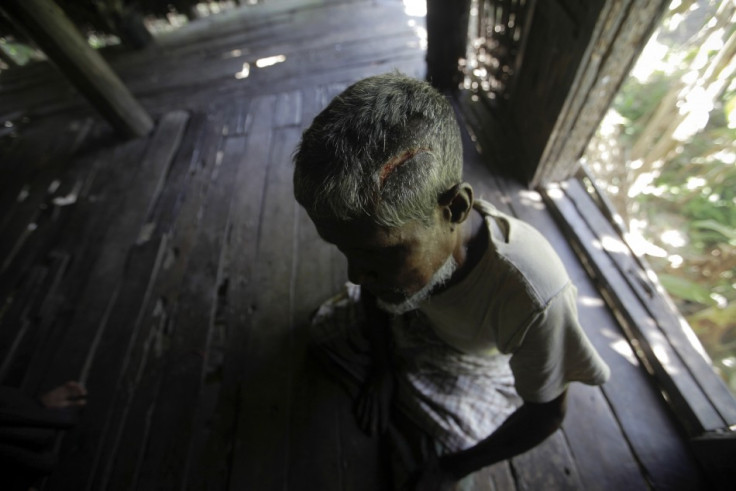Myanmar's Rohingya Muslims: Junta Restricts Access for Medical Aid

Medecins Sans Frontieres (MSF) has accused government forces and local leaders in Myanmar's west Rakhine state of preventing them from reaching displacement camps where entire communities of Rohingya Muslims are without access to clean water or healthcare.
The charity said workers had been on the receiving end of threats and intimidation for alleged bias towards Rohingya. Many Muslim internal refugees were confined to flooded rice fields or crowded strips of land with no sanitation, it claimed.
The aid group is allowed to visit camps just once a week and its staff are prevented from staying overnight. Government forces restrict the movement of Muslim patients, even if they are in critical condition, according to MSF general director Arjan Hehenkamp.
Doctors were impeded from dispensing proper treatment for skin infections, diarrhoea, respiratory problems and worms, said MSF. More than 10,000 medical consultations have been carried out in the camps since October.
"If we [tried to] transport a sick Muslim patient to Sittwe Hospital, it often happened that the captains of the boats [we had to use] did not dare take the patient," said Hehenkamp.
Among the worst-hit in the camps were pregnant women and children, a vast number of whom are acutely malnourished, he added.
"The morning we arrived at a camp, a child who was one and a half years old had died from a common cold. This disease is preventable but it can be a death sentence at these camps," he said.
A displaced man living in Pauktaw township, Rakhine state, said that the only drinking water available for camp residents was in a cattle pond in a nearby village.
"Our repeated explanations that MSF seeks only to provide medical aid to those who need it most is not enough to forestall the accusations [of prejudice]," said Hehenkamp.
A Thai security agency has confirmed that 6,000 Rohingya Muslim refugees have crossed the boder into Thailand since October. Thai security forces discovered almost 1,400 Rohingyas during raids in the south of the country in January. More than and 1,700 have been detained for unlawful entry.
Rohingya, who are regarded by the UN as the world's most persecuted minority, have never been granted citizenship in Myanmar and a 1982 law excludes them from the list of officially recognised minorities.
Sectarian tensions between Rakhine's 800,000 Rohingya and their Arakanese Buddhist neighbours exploded in June after allegations that a gang of Rohingya men had raped an Arakanese woman. The Muslims were lynched in response, sparking days of rioting.
Thousands of Rohingya flee Myanmar each year on boats for Thailand, Malaysia and Indonesia but the number has increased since the sectarian unrest.
Westminster has backed a motion calling for UN-mandated observers in Rakhine.
UPDATE (12/02/2013): In a statement to the IBTimes UK, MSF said:
"At no point has MSF accused the government of preventing us from reaching the displacement camps. Our press release clearly states 'MSF and others have been repeatedly accused of having a pro-Rohingya bias, by some members of the Rakhine community. It is this intimidation and not formal permission for access, that is the primary challenge MSF faces.'
"The government is not preventing us from visiting the camps more than once a week, it is our lack of capacity - because staff are too scared to work in Rakhine state because of the sustained intimidation and threats against MSF workers by some members of the Rakhine community - that prevents us from visiting the camps more often.
"We have asked for permission to spend the night in the camps and are in dialogue with the authorities about this at the moment."
© Copyright IBTimes 2025. All rights reserved.






















